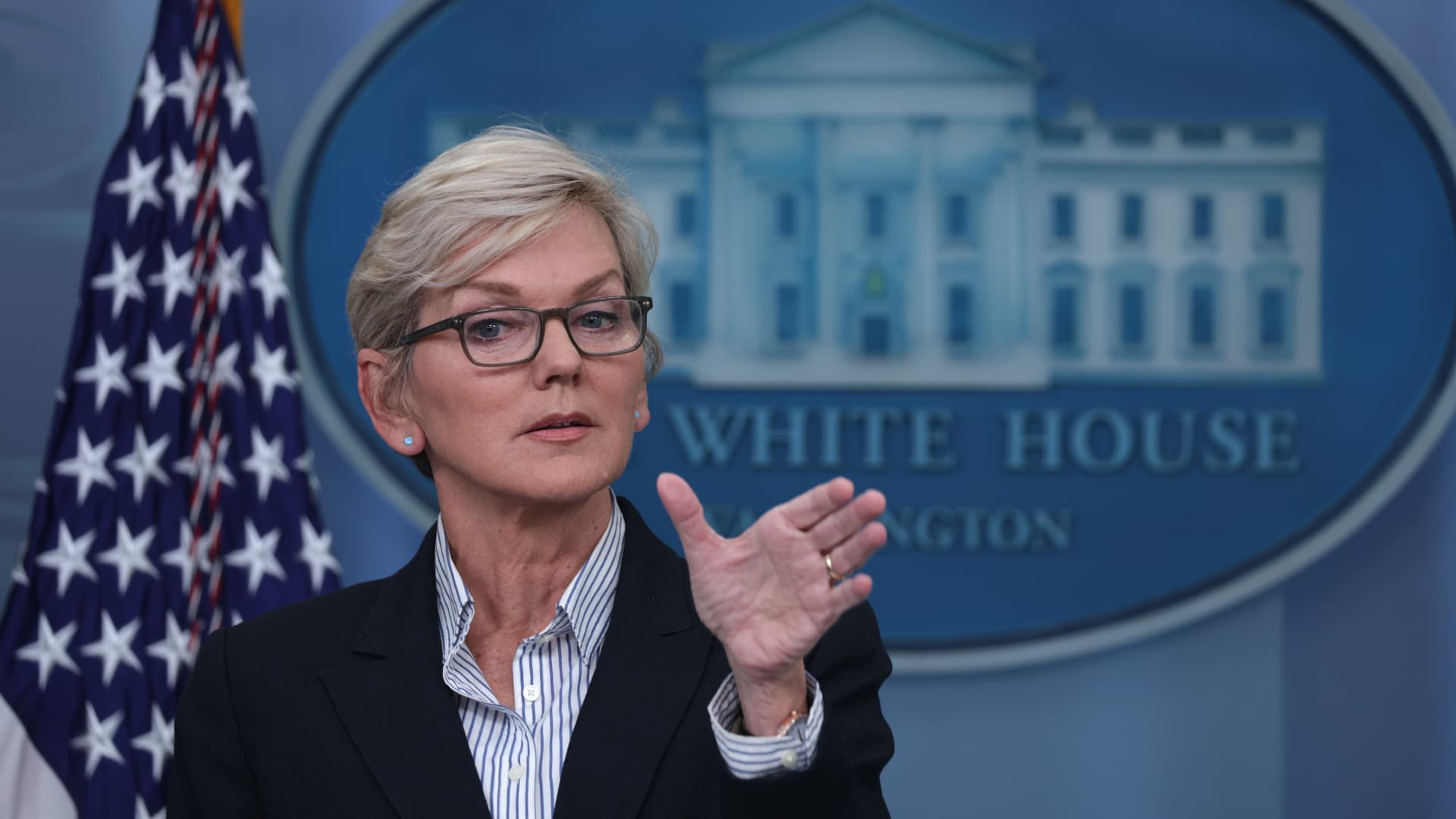Volatility is still weighing on oil markets, U.S. Energy Secretary Jennifer Granholm said Saturday, reiterating calls for additional supplies.
Asked to comment on the state of oil markets, she told CNBC’s Sri Jegarajah that “there’s no doubt that there is a volatile environment, and … there’s plenty of indebtedness” — a situation that the White House is monitoring.
“There is a lot of emotion in these markets and so we have deep concern about trajectories of where things are headed,” the energy secretary added.
Granholm said she expects oil demand in the U.S. to increase to 12.5 million barrels per day this year, and to make further gains in 2024.
Despite this, Granholm also called for additional output to help curtail prices.
“We want to see more supply … It gets dangerous when the prices are so high,” she said. “I think the prudent course is to ensure that transportation is affordable for people, and that of course means making sure that supply is stable.”
Some members of the Organization of the Petroleum Exporting Countries and their allies — collectively known as OPEC+ — are voluntarily cutting production by a combined 1.66 million barrels per day until the end of 2024. Coalition heavyweights Saudi Arabia and Russia have announced further voluntary declines in July and August comprising 1 million barrels per day in output and 500,000 barrels per day of exports, respectively.
High crude oil prices continue to be a challenge for the Biden administration, and lowering costs remains a priority.
“We want prices to come down. The president is really focused on the impacts on real people who need to get to work and cannot afford that premium,” Granholm highlighted.
The U.S. has historically vocally championed lower prices at the pump, in a bid to ease the strain on consumer households and curb inflation. Washington has repeatedly entreated OPEC+ producers to support this effort by lifting their output — culminating in a brief war of wards with Saudi Arabia in October last year.
The U.S. is now facing lower inflation, with the consumer price index showing a 3% year-on-year increase in June.
Renewables
Granholm also discussed the importance of transitioning to renewable energy — a key topic in this year’s energy summit.
“China and the United States are the biggest emitters in the world … Their citizens are feeling the impacts of these extreme weather events,” Granholm said, adding that the U.S. is keen to “find an oasis” by cooperating with China on deploying clean energy.
“We have to do everything, everywhere, all at once. Deploy, deploy, deploy clean energy. Because if we don’t, our planet is on fire, and we must address it.”

